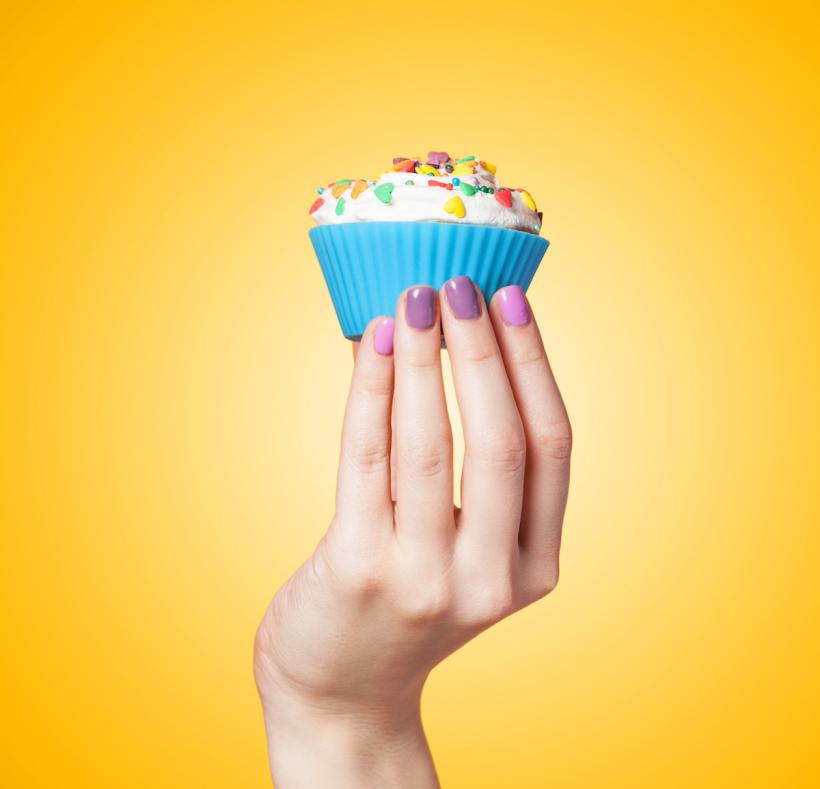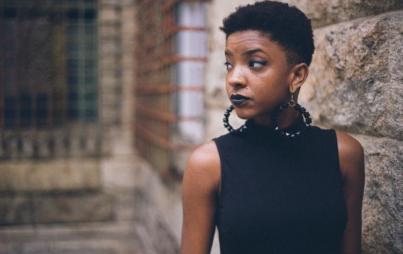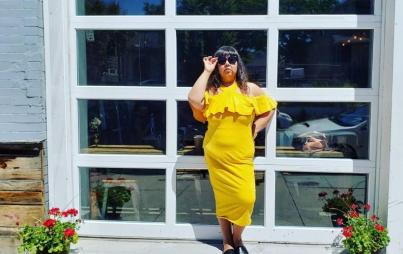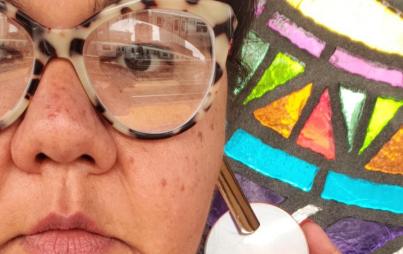
Life is about so much more than whether or not you eat that cupcake.
When I was growing up, my grandmother would say things like, “She’s all skin and bones, we need to feed her. Mangia, mangia!” and she’d feed me as though I’d never eaten before.
I was very thin throughout my childhood and teens — I didn’t develop a shape until I was about 22. I had gotten used to living in a thin body, and I absolutely did benefit from all the bullshit that comes along with that.
But one day, as an intern in college at CosmoGirl! Magazine, I remember being excluded (along with other interns with slightly larger bodies) from a to-be-published staff photo spread. When the spread was published, all the girls in the shot were small — small enough to notice their not-bigness. It was the first time I felt “othered,” the first time I noticed how some versions of thin weren’t thin enough. Never mind those interns who were larger than a size 6.
During this time, the fashion industry, I think, was still struggling with depicting bodies of all sizes as beautiful. One day, they brought us into a conference room and showed us how they'd added weight to a model's picture, making her thigh look slightly bigger. It was an early, early incarnation of body parity in fashion, but its execution was poor. I was young and pretty uninformed about sizeism at that time, but even I knew there was something off about that.
At 26, I was diagnosed with Uveitis, a chronic, deeply painful eye inflammation condition that nearly stopped my life for almost a year. Caused by an autoimmune disorder (Ankylosing spondylitis) that reared its ugly little head through my eyes, I went through a lot to stop the pain — seeing doctor after doctor for opinion, sitting in the dark for months, spending untold amounts of money on medication.
And that medication — steroids — caused me to gain a considerable amount of weight. I jumped maybe 20 pounds fairly quickly — enough weight for friends to notice, enough weight for my body shape to change. Enough weight to ruminate on.
Enter my 30s. Loss of metabolism, life stresses, and a love of red wine and carbs (hello, Mediterranean DNA!) made it so that I gained a little more weight, which, I admit, I have not tried to lose. I’m 5’8 and 160 pounds — I love myself, but I haven’t quite gotten used to being in a new body.
How do you get used to a new identity — especially one that others force onto you?
Suddenly, I was made to play the part of "the curvy girl." In this new body, it was like I had a sign on my forehead; friends would ask me my thoughts on this plus-size model or that body equality campaign.
The topic of dieting came up in earnest, as though I must want to take part. Did I count calories? Did I allow myself to eat carbs only once per week? Did I ever consider the Paleo diet? And, more so, did I want to lose “maybe 15 pounds?” Because apparently all these little things might make me better, more attractive — and, of course, thinner.
It’s as if I’d become this in-between person who could straddle the line between my thin friends and my bigger friends, who was receptive to conversations around the body. Who, by the very acting of being myself, was seen as somehow radical. But I was just being me.
♦♦♦
The other day, I was researching veganism for an article I was writing; I found myself watching video after video on YouTube of young girls discussing how veganism changed their lives and saved them from disordered eating. At best, some of these videos were hopeful, healthful and well-researched. At worst, these girls were exchanging one disease for another — swapping out not eating for total food obsession — all to, in the end, stay as thin as possible. This isn’t about veganism (although the connection has been documented), it’s about the way we talk about food and the way we approach it that can be difference between a healthy mindset and a problematic one.
The reality is that food can change us for the better, but there’s something internal that must take shape as well. A want for self-love. A want for nourishment. A want to live and flourish — no matter your body shape or size. We can’t make food into a god. Like plus-size model Lyanna Lynette says, eating is about moderation — you try to eat healthy because the body physically needs it, but you also can’t let it run your life.
Food is many things. To start off, it’s necessary for survival. But for many — for me — it’s a culture, it’s a religion, it’s a conversation, it’s a love affair. And it can take many shapes, even the shape of an enemy, of punishment, of shapelessness.
I decided to think more about how I talk about eating and dieting when a friend, who decided not to let her life be run by food and body weight fear, said to me, “I don’t want to sit here and talk about what I shouldn’t order or why I feel bad after I ate the french fries.”
It dawned on me that that’s what she’d been doing — and that, to some extent, it was what I’d do as well when I was with her. Now we try to keep food talk positive and open; we don’t bait one another with comments like, “I’m going to be bad and order the pizza.” And we don’t say things like, “I shouldn’t order that.”
It’s not that we’re not being honest, we just gave up making space for a bad relationship with food. Just like we don’t indulge in body hate conversations. You might see girls in the movies bashing their body parts one after the other (as a teen I’d internalized the “fat ass” comment in The Craft, for example), but I don’t want to be part of that. I don’t want my friends to be part of that either.
I am not radical. I am not interested in dieting or becoming obsessed with food. I am interested in working out and eating well to keep healthy, but I don’t want to let food run my life, no matter my weight.








